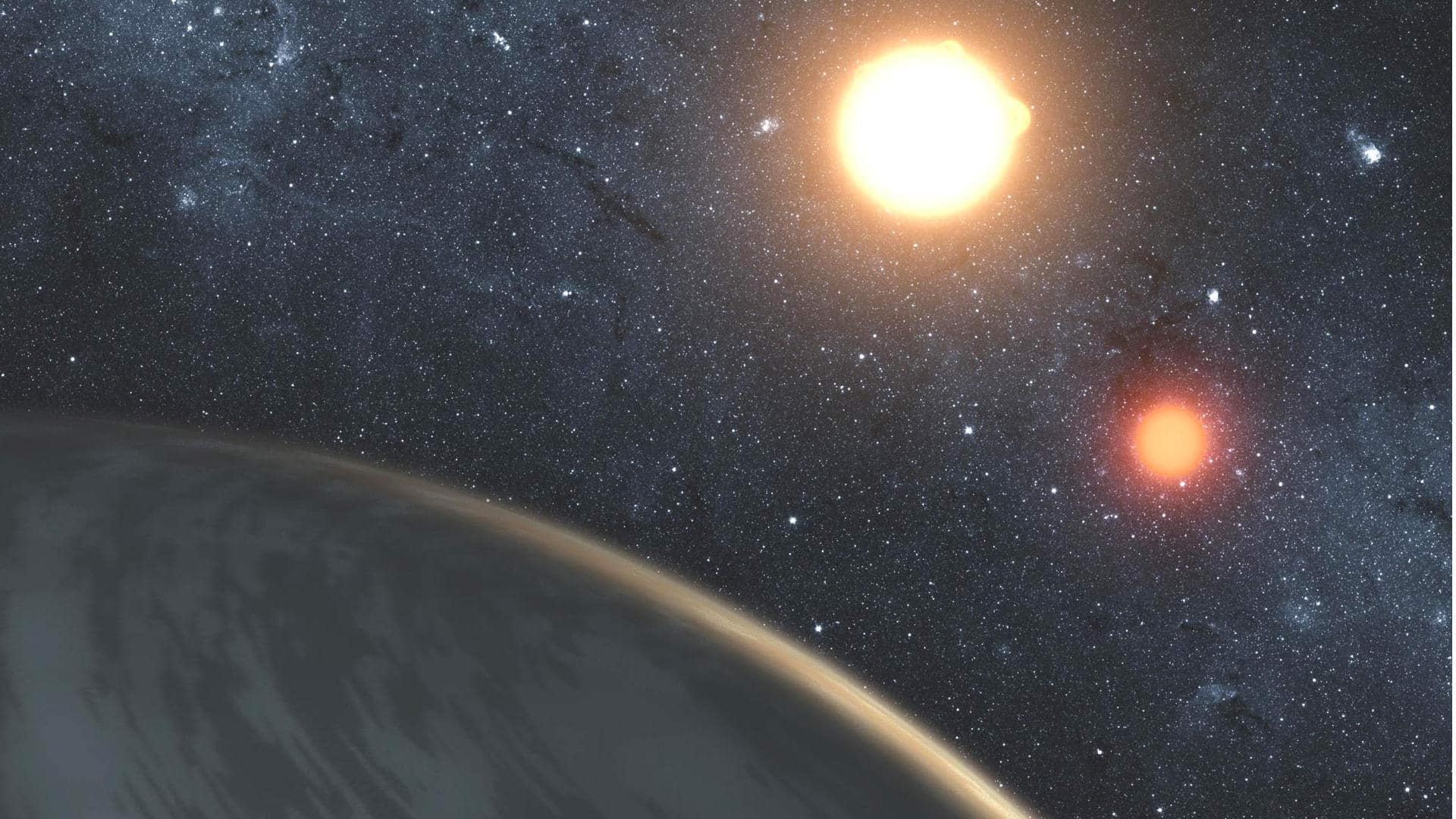
Watch: This young gas giant orbits a binary star system
What's the story
A team of international astronomers has discovered a young gas giant exoplanet, HD 135344 Ab, orbiting a 12-million-year-old star. The discovery was made using the SPHERE instrument on the European Southern Observatory's Very Large Telescope. The planet is located in the double star system HD 135344 AB, which is some 440 light-years away in the constellation Lupus.
Trivia
A unique binary star system
The HD 135344 AB system is a unique binary star system, with two stars, A and B, orbiting each other at great distances. Star A has finished forming planets, while star B still has a protoplanetary disk. This suggests that planet formation around binary stars can happen at different times. The newly discovered exoplanet HD 135344 Ab is about 10 times the mass of Jupiter and orbits its star at a distance similar to Uranus's distance from the Sun.
Confirmation process
Confirming existence of HD 135344 Ab
The existence of HD 135344 Ab was confirmed after a four-year study. Initially, it was unclear if the object was a planet or a background star. To confirm its planetary status, astronomers used the GRAVITY instrument to combine light from VLT's four large telescopes and map the object's location with great precision. Over seven observations, they found both star and planet moving together, confirming that HD 135344 Ab is indeed a planet.
Upcoming research
Next steps for the team
The team plans to continue observing HD 135344 Ab with the GRAVITY instrument and hopes to use the yet-to-be-built ELT telescope on the planet. This will help them analyze its atmospheric composition and gain insights into its evolution. They also plan to look for gas giants around other young stars at similar distances from their stars as HD 135344 Ab, which could be part of a population of exoplanets that have been hard to detect so far.